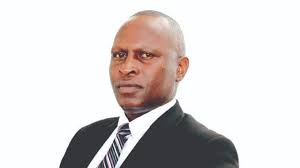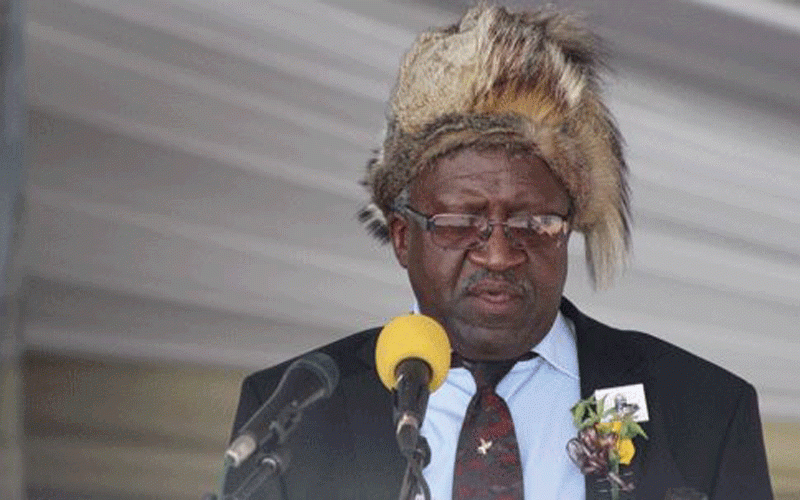
THE silent pain of losing unvaccinated children is emotionally recorded on Maria Rukanga’s memory.
Deep in Mapuranga village in Chivende under Chief Mjinga, Rukanga (40) has regrettably, never attended any secret burial presided over by church elders, done without remorse and never discussed even at family setups.
The Rukanga homestead, about 95 kilometres from the farming town of Karoi, is a small compound with seven grass-thatched huts where several children of varying ages reside.
In a family of five wives, Rukanga is the second and is not alone in facing the untold pain and predicament.
From her teenage marriage to a member of the white garment church, also known as an apostolic sect, she has lost count of how many children aged five years and below have died in her community.
She alone has lost two of her six children to ailments she feels could have been dealt with through seeking treatment at a nearby clinic.
"Whenever a child dies mostly from unvaccinated diseases, it's an unwritten law that a replacement is made as a matter of urgency," said Chikanga, fighting back tears.
"The cycle also targets other women from polygamous families in other villages. The husband dictates how many children I must have for him. Death of any child means we must make a recount."
- Zanu PF 'threatens' terror attacks
- Suspected armed robbers nabbed.
- 11 armed robbers netted
- Karoi armed robbers remanded in custody
Keep Reading
Hurungwe district, Mashonaland West province, is known for resisting vaccinations scheduled to fight diseases, including malaria, polio and the contagious respiratory illness — flu bug, among others, within the province.
The most affected in the communities are children whose rights have been taken away by guardians and parents.
"It's a pity that we have lost several young lives from mainly apostolic sect churches, where secret burials are rife. To them, there is no grief when a child dies for lack of vaccination. Hardliner husbands oversee the secret burials. It remains a non-issue to talk about," revealed a church member speaking on condition he is not named.
In Hurungwe district, several wards identified as “red zones” for failing to adhere to health as a basic right for children are mostly rural-based.
The most worrisome areas include Zebra Downs (ward 3), Lynx (ward 4), Chinhere (ward 5), Karuru (ward 8), Kapfunde (ward 12), Chivende (ward 14) and Nyama (ward 22) which have high numbers of apostolic sect membership.
Last year, over 35 children were secretly buried, fuelling anger from child rights advocates.
Shamwari Yemwanasikana programmes lead officer Esnara Kativhu said it was depressing that the children were never afforded healthcare.
“We are deeply concerned about the ongoing neglect of children’s health and well-being by certain apostolic sects in Hurungwe district, Mashonaland West. The recent measles outbreak, which tragically claimed the lives of over 35 children, highlights the urgent need for immediate action to protect the girl child,” she said.
Bishop Gabriel Nyamande, leader of the Masvingo-based St Peters Apostolic Church of God, condemned those who do not believe in hospitals or scientifically-proven medical systems.
“Our apostolic church has its principles of accessing medication from health facilities. It is not a crime to seek medication. We have had awareness campaigns with followers on HIV and Aids, polio vaccination, among others. We are open to health officials so that our membership can get medication or vaccination for minors,” Nyamande said.
“We call on the media to help us to mediate with our fellow apostolic sect followers on the positives of medication at health facilities so that we curb unwarranted deaths of minors,” Nyamande said.
Health and Child Care deputy minister, Sleiman Kwidini, said immunisation was mandatory.
"Every child must be immunised at the age of five. The issue is that we have got some challenges with Christianity or other people who do not believe in that, but it is now mandatory for each government stakeholder to encourage and preach the gospel of immunisation to everyone to appreciate efforts made by the government so that everyone is immunised despite their religion,” he said.
Mashonaland West provincial health promotions officer George Kambondo said there was a need to intensify advocacy and communication around immunisation.
"We must travel to underserved and hard-to-reach populations with both communication and vaccination services,” he said.
“There is a need to provide due and overdue vaccinations, including Vitamin A supplementation, to eligible children, strengthen disease surveillance and monitoring of other essential health services," said Kambondo in a written statement.
The World Immunisation Week, which ran from April 24 to 30, is aligned with African Vaccination Week as an annual regional initiative aimed at strengthening advocacy and communication efforts to ensure increased awareness and uptake of immunisation services.
The campaign seeks to protect children, adolescents and adults by increasing access to and demand for vaccines.
This year, World Vaccination Week was commemorated under the theme, Immunisation for All is Humanly Possible.
Community Working Group on Health executive director Itai Rusike noted that communities must work closely to avoid vaccination resistance.
"Refusal to vaccinate can also be due to complacency, as some have grown up without seeing cases of smallpox, polio that have been eliminated by vaccination. They must be reminded to ensure there is no resurgence, but there is improvement in achieving universal vaccination; it is humanly possible," he said.
Rusike said the limited resources in the ailing health system had imposed restrictions on scheduled outreach visits to remote and unserved locations. This, he said, had seen an increase in zero-dose children.
“It is in the best interest of the children and as provided for in the Constitution and laws that health and access to healthcare are a right for all Zimbabweans, including children and the elderly,” Rusike said.
"So, it is against the law for parents/guardians, churches, traditionalists, those who prefer complementary or alternative healthcare, the elite and other objectors to deny vaccinations.”
He believes there is a need to engage “all possible pockets of resistance” and educate them on the unique value of vaccination and its power to protect health, life and, of late, preserve the few effective antibiotics by curbing resistance.
In a statement marking this year’s World Immunisation Week, the World Health Organisation (WHO) bemoaned the reversal of gains that had been made.
“Hard-won gains in stamping out diseases that are preventable through vaccination are in jeopardy. Decades of collaborative efforts between government, aid agencies, scientists, healthcare workers, and parents got us to where we are today — a world where we’ve eradicated smallpox and almost eradicated polio,” it said.
WHO noted that over the last 50 years, vaccines have saved at least 154 million lives.
“That’s six lives a minute, everyday, for five decades,” it said.
For Rukanga, vaccines may bring peace of mind to her troubled soul by witnessing children grow without secret burials haunting communities again.
But for now, she has to endure the pain of losing children to diseases she knows can be avoided.






